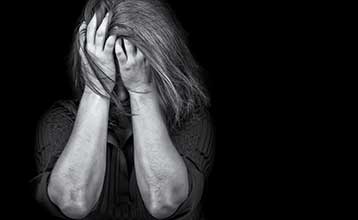In a divorce, one of the major issues to be determined is the custody, care and control of any minor children of the marriage. A common question is whether the law in this area is biased against fathers, as the Court seems to lean in favour of mothers when deciding on this issue.
In this article, we’ll tackle some of these concerns in relation to key factors.
Custody of the children
Custody refers to the authority to make major decisions for the children, such as their education, religion and healthcare. The Court’s current position aims to acknowledge the importance of each parent’s role in the children’s lives. In the case of CX v CY [2005], the Court of Appeal recognised the importance of joint parenting and established the preferable position to preserve the concept of joint parental responsibility. In this regard, the Court will usually make joint custody or no custody order. The Court will only make an order for sole custody in exceptional circumstances. Therefore, any concerns of prejudice against fathers should be allayed.
Care and control of the children
After the custody issue is decided, the next question that the Court has to look at is who shall have care and control of the children. An order for “care and control” gives the parent authority and responsibility for the day-to-day matters of the children. The children will also reside with this parent.
The common perception that people have is that the Courts are guaranteed to award care and control of the children to the mother. The basis of this belief appears to be that care and control of the children are awarded to mothers in a large majority of cases.
Nevertheless, a closer look at Singapore’s legislation and the decisions of the Singapore Courts will show that there is no discrimination against fathers. When the Court addresses any matter relating to the children, the paramount consideration for the Court is the welfare of the children. This is clearly stated in Section 125(2) of the Women’s Charter and Section 3 of the Guardianship of Infants Act.
Known as the “welfare principle”, this consideration of the children’s welfare will supersede any other factor when the Court determines any issue relating to the children. So the logical question that follows is how the Court will decide what is in the best interests of the children? This is particularly challenging when the children have two parents who love them equally.
In Tan Siew Kee v Chua Ah Boey [1987], the High Court held that the expression “welfare” is to be taken in its widest sense. Thus, the welfare of the children is not to be measured in monetary terms. Instead, it refers to the general well-being of the children and all aspects of their religious, moral, and physical upbringing. This includes their happiness, comfort and security. Therefore, a loving parent with a stable home would be conducive to the attainment of such well-being.
When applying the welfare principle, the Court will look at a variety of factors such as the children’s wishes, the parent’s availability to care for the children and the children’s dependency on a parent. In addition, two other essential factors are further elaborated on below.
Continuity of care arrangement
The Court is generally inclined towards preserving the children’s current living arrangements, particularly if the children are happy with where they have been living or if the children are of an age where changing their living arrangement could be too unsettling for them.
An important aspect that the Court will look at is which parent was the primary caregiver to the children before the divorce proceedings, as the children are likely to be more dependent and closer to that parent. The Court may also consider any major changes that would have to be made to the children’s education and routine if care and control go to one parent.
Which parent can offer better security and stability
While financial support is an important consideration, the Court will usually give more bearing towards which parent can offer better security and stability for the children. This involves securing suitable and stable living arrangements both for themselves and the children and being able to commit a consistent amount of time to look after the children. Thus, continuing living in the matrimonial home could be an advantage as the children will not have to be uprooted from the home they are already comfortable with.
In most cases in Singapore, the mother is the primary caregiver of the children. Therefore, where there are young children involved who are more heavily dependent on their mother, the Court is more likely to give care and control to the mother. However, this does not mean that there is a bias against fathers. Rather, the Court will look at the specific facts of each case in deciding what would be in the best interests of the children.
If you wish to understand your situation better, it would be advisable to speak to an experienced family lawyer who will help you assess your situation.


